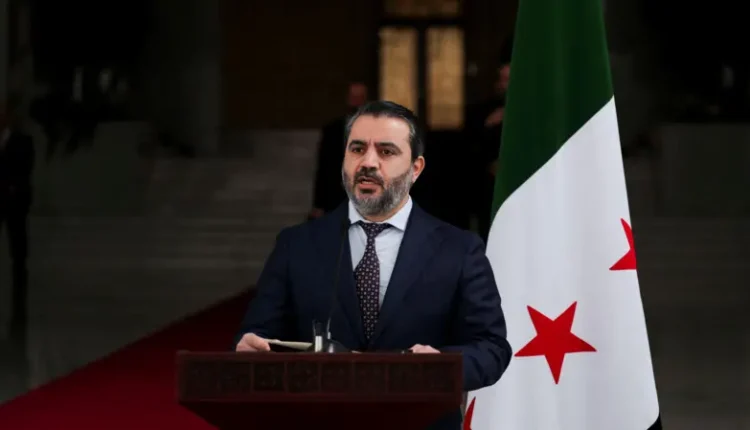U.S. Grants Visas to Syrian Delegation Headed by Foreign Minister al-Shibani
By Kardo Roj
DAMASCUS, Syria (North Press) – In an unexpected yet significant development, the United States has granted visas to a high-level Syrian delegation, including Foreign Minister Asaad al-Shibani, to attend upcoming meetings in Washington, sources confirmed on Saturday.
The delegation, which also includes Syria’s Central Bank governor and finance minister, is scheduled to participate in the World Bank’s spring sessions next week in the U.S. capital. While the visit is officially tied to financial discussions, observers say it could signal the opening of a cautious diplomatic channel between Washington and the Syrian interim government.
The move was first reported by Syrian media outlets and later confirmed by Mohamed Ghanem, a prominent Syrian-American political advocate and co-founder of the Syrian-American Lobby. “We appreciate the U.S. government’s decision to issue the necessary visas,” Ghanem said, describing the opportunity as a “significant chance for diplomatic dialogue.”
Al-Shibani’s trip to the United States comes at a politically delicate time. The transitional Syrian government, formed after the ousting of former President Bashar al-Assad in late 2024, is still seeking international legitimacy. Despite a lack of formal recognition by Washington, the visa issuance suggests a possible softening in tone.
The Biden administration, and now the Trump-led government as of January 2025, has previously maintained a cautious approach toward the new Syrian leadership, citing concerns over the participation of former armed factions in the interim authority. Nonetheless, granting travel access for official business marks a notable shift in policy.
A U.S. State Department spokesperson declined to comment on the specific diplomatic intentions behind the visa approvals but reiterated that “the United States does not currently recognize any entity as the legitimate government of Syria.”
Ghanem emphasized that Syria’s presence at major international forums such as the World Bank meetings is “essential” for future reconstruction. He noted that discussions in Washington may not only focus on economic recovery but also lay groundwork for broader diplomatic engagement if security and governance benchmarks are met.
Analysts suggest the transitional government hopes to use the Washington visit to reinforce its vision for a sovereign, pluralistic Syria and secure economic partnerships necessary for rebuilding key infrastructure and public services. However, progress is likely to depend on continued counterterrorism cooperation and internal political reform.
The U.S. visit follows a surprising trip by Representative Marlin Stutzman (R-IN) to Damascus on Friday, where he met with Syrian interim officials, including al-Shibani. “My visit to Syria was a powerful experience,” Stutzman told reporters upon return. “I plan to brief my colleagues on the positive meetings I had with the Syrian leadership. It’s important we have not just an ally but a friendly partner in Syria.”
While the visit was not coordinated with the White House, it reflects a growing interest among some U.S. lawmakers in engaging with transitional authorities in Damascus—especially amid ongoing regional shifts and efforts to curb extremist threats.
The U.S. decision to issue travel visas, though limited in scope, may hint at a slow-moving reconfiguration of American policy in Syria. The move comes amid heightened regional diplomacy involving Russia, Qatar, and other actors seeking to stabilize post-conflict Syria through reconstruction and political dialogue.
In northeast Syria, where the Autonomous Administration and the Syrian Democratic Forces (SDF) maintain relative stability, there is cautious optimism that broader international engagement with the Syrian political process could support inclusive governance and sustained security gains.
However, experts caution that diplomatic thawing remains fragile and contingent on demonstrable steps by the interim government to distance itself from extremist influences and uphold human rights standards.

